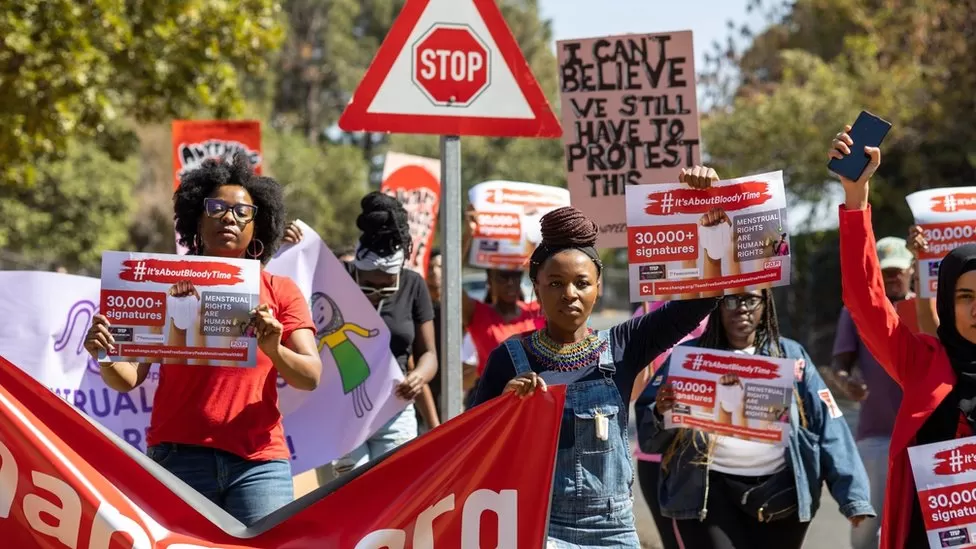WOMEN on the minimum wage in Ghana have to spend one in every seven dollars they earn on sanitary pads, research by the BBC has found.
The BBC surveyed nine countries around Africa to see how affordable period products are. We compared the minimum wage to the local cost of the cheapest sanitary pads and found they were beyond the reach of many women.
While Ghana was the country with the least affordable menstrual products of those we surveyed, women across Africa are struggling with “period poverty” – something activists are trying to change.
Joyce, a 22-year-old Ghanaian, cannot afford to buy what she needs when she’s on her period.
“The only person available to help wants sex before he gives me the money. I have to do it because I need pads for the month,” she tells the BBC.
In six of the countries studied by the BBC, women on the minimum wage have to spend between 3-13% of their salary to buy two packets of sanitary towels containing eight pads – what many women will need each month.
As an assistant in a grocery store, Joyce lives with a family friend and survives on tips. Previously, she could afford to meet the cost of sanitary pads when it cost 4.88 Ghanaian cedis (45 US cents; 35 UK pence) per pack.
However, after the government increased taxes on sanitary products, a packet of pads now costs 20 cedis, pushing them out of her reach.
The price rises caused women to protest outside Ghana’s parliament in June 2023.
Joyce resorted to using toilet paper as makeshift pads, but when that proved unsustainable, she says she felt out of options and gave in to sexual demands in return for cash for pads. But Joyce’s struggle is just one among many.
The BBC used the minimum statutory wage in each of the nine countries studied, and the lowest priced pads available locally to calculate its findings.
Ghana was found to have the most expensive products relative to monthly income.
According to our research, a woman in Ghana earning a minimum wage of $26 a month would have to spend $3, or one in every $7 they make to buy two packets of sanitary towels containing eight pads.
That means for every 80 cedis they earn, they have to spend 11 cedis on pads alone.
By way of comparison, women in the US or UK would spend considerably less. For example, in the US minimum wage earners would spend $3 out of $1,200.
Francisca Sarpong Owusu, a researcher at the Center for Democratic Development (CDD) in Ghana, says many vulnerable girls and women are using cloth rags which they line with plastic sheets, cement paper bags and dried plantain stems when menstruating because they cannot afford disposable sanitary towels.
And the problem reaches far beyond Ghana. The impact globally is astounding.
According to the World Bank, 500 million women worldwide have no access to menstrual products.
They also lack adequate facilities for menstrual hygiene management like clean water and toilets.







